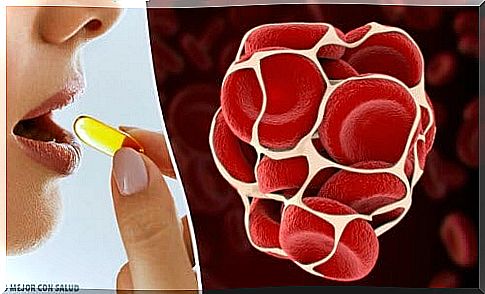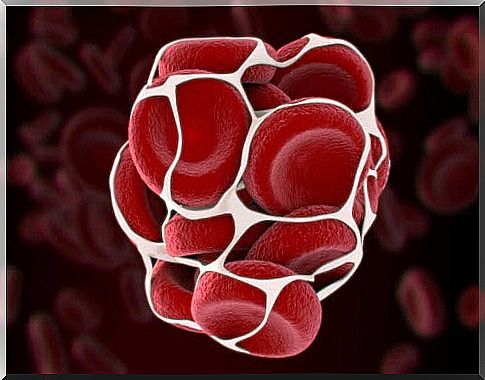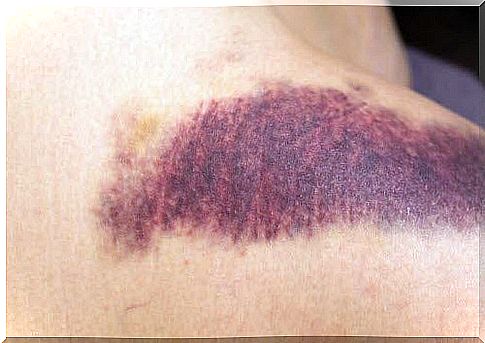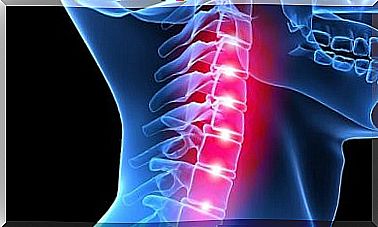Four Symptoms Of Vitamin K Deficiency In The Body

You do something and you suddenly get a nosebleed. Does this sound familiar? Another day, you put on your new shoes and a wound occurs. Not sure what’s going on, but have you been noticing strange bleeding more and more lately? Vitamin K is responsible for this and it is very possible that you are suffering from a deficiency of it.
Are you hearing about this for the first time? Yes? Well, not only you. There are other vitamins that are more popular than vitamin K , even though it is just as needed as all the rest.
Therefore, in this article, we would like to introduce you to a few facts about it and help you recognize the symptoms that accompany vitamin K deficiency.
What is the function of vitamin K?
Vitamin K is well known to people who take acenocoumarol (such as Acenocoumarol WZF or Sintrom). It is an anticoagulant drug that is responsible for controlling proper blood clotting.

When your blood is too thin, you run the risk of uncontrolled bleeding at unexpected times, such as at the dentist or podiatrist. In the worst case scenario, you could even suffer a stroke.
To prevent this from happening, the diet should be enriched with the right dose of vitamin K. The good news is that there are many foods that are rich in this nutrient.
You can distinguish them by choosing green products that should always be on your plate.
Vitamin K and symptoms of its deficiency
If you don’t get enough vitamin K in your body to function properly, you may experience the following symptoms:
1. Haemorrhage
As we mentioned earlier, when your blood is too thin, you have a higher chance of experiencing accidental bleeding. Even a small cut while cooking can become a serious problem as bleeding will be difficult to stop.

For this reason, it is important to have your vitamin K levels checked. Remember that if you go to the dentist or if you undergo any kind of intervention or minor surgery, you can develop serious complications.
In the same way, the possibility of internal hemorrhages of varying intensity cannot be forgotten.
No matter how serious your case is, these symptoms can become a serious problem for your health and, in the long run, even for your life.
2. Bruises
The least serious symptom of hemorrhage is bruising. A bruise is a collection of blood under the skin caused by a hemorrhage. The good side of getting bruises is that they can alert you to a vitamin K deficiency.
There are people who complain that bruises appear even with the slightest contusion. Others may not even know where they’re coming from because they don’t remember anything that might cause them. Despite not being hit, a bruise appears.
If you notice this symptom, you should do a blood test to check your clotting ability. It may turn out that the problem is vitamin K deficiency and adequate supplementation is enough to avert this problem.
3. Haemorrhagic diathesis
A hemorrhagic diathesis is the spread of purple or red spots to certain areas of the body due to blood pooling. Unlike bruises, these spots do not go away.

They are most commonly found around the ankle because it is a critical location for blood circulation.
If you suffer from this condition and although it may be impossible to get rid of the spots that have already formed, you can stop it spreading by consuming more vitamin K.
However, you should be aware that this will not always bring the expected results.
4. Calcification of the joints
What does it mean? Too much calcium in these areas can make it difficult to move around. At the same time, other areas weaken due to the lack of the necessary ingredient. If vitamin K deficiency is severe, acute pain and general deterioration of the entire skeletal system can occur.
Summary
Keep a close eye on each of the symptoms listed. Most of them, as a rule, are not serious, but have a warning function, they give a signal that your health may be at risk.
So, as soon as you notice any of these symptoms, consult your doctor and ask for a blood test.









